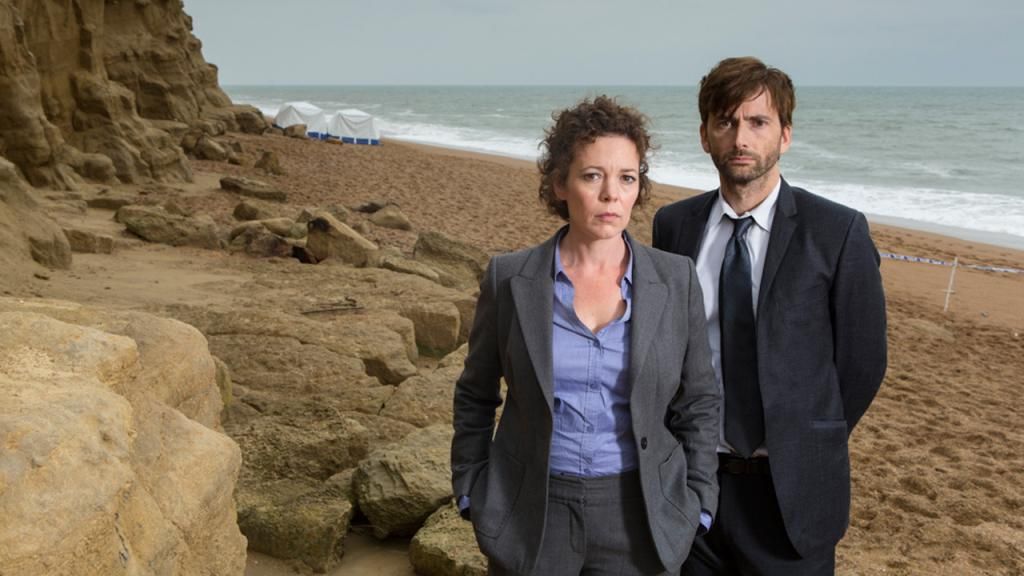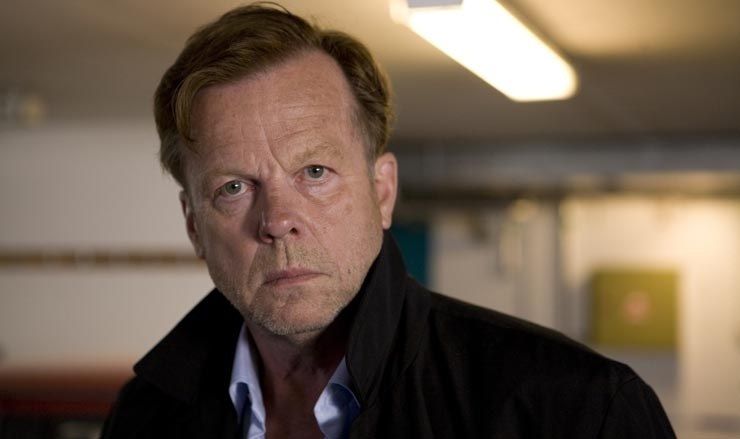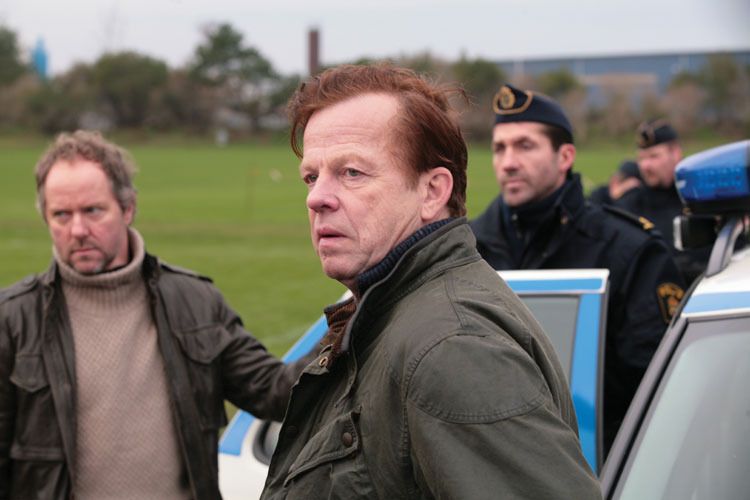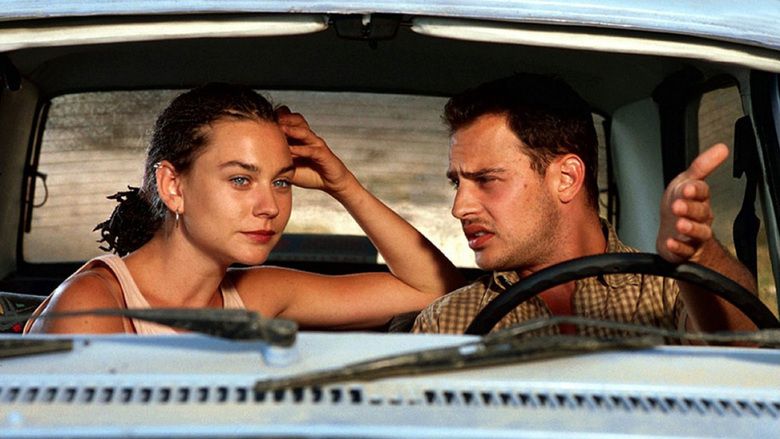There's a crime wave on television. Detective series are all the rage. Sometimes it seems they're cranked out like sausages, and inevitably they struggle -- or don't bother to -- against a load of clichés: The surly unsympathetic boss; the mismatched, hostile partners; the public and media baying for an arrest; the obvious suspect who turns out to be innocent (especially if said subject belongs to an ethnic or sexual minority); "What've we got here?" from the detective arriving at the murder scene; etc.
The viewer who has seen and heard it too many times is tempted to jack the whole genre, especially after such duds as George Gently and the hash made out of the novels based on Ian Rankin's Inspector Rebus and Ruth Rendell's Inspector Wexford.
But a lot of us, obviously, are drawn to detective series. I confess, without even consulting a lawyer, that I am one. With each new program I nurse the hope for something special.
Broadchurch has been a big-time ratings success in the U.K., maybe the hottest show since Downton Abbey. It's available in the States via Netflix DVDs. Broadchurch is above the baseline, though not especially because of the script. Screenwriting is virtually a lost art, most of all in well-trodden fields like police dramas. But Britain has a seemingly bottomless store of acting talent to call on, and it's evident here.
Tennant speaks in a Scottish accent you need a pickax to get through (unless you're Scottish). He's a bear with a permanent sore paw, who looks like he sleeps in his suit (the tie always knotted below the top shirt button) and would still wear a scowl if he were being massaged with a peacock feather.
This actor is, I understand, the most recent Doctor Who. I don't watch Doctor Who, but my wife does, and she says he was excellent. Tennant makes a strong impression, more by his portrayed unpleasant temperament as any attempt to win the audience's favor.
But it's Olivia Colman who steals scene after scene. She appears to be wrapped up in her police work to hide, especially from herself, some deep sadness. Colman has the gift of being able to express several moods at once.
The supporting roles, especially the parents of the murdered young boy who is the subject of the investigation, ably hold up their end.
We are told that the series was shot in the sequence of the episodes, with the writer and director keeping the cast in the dark about who the guilty party was until the final revelation. Supposedly this was to keep them from unconsciously signaling anything to viewers in advance. That sounds like public relations bunk, to give the media something to write about. Actors of this caliber aren't going to drop any hints by mistake. Whatever, Broadchurch is well worth a look for fans of this kind of entertainment.
A while back I wrote about the British TV series based on Swedish writer Henning Mankell's inspector Wallander, with Kenneth Branagh in the lead role. Other than the compulsively watchable Branagh, I didn't find a great deal to cheer about.
There had also been two Swedish-made series centered on Wallander: The first, which ran between 1994 and 2007, starred Rolf Lassgärd. I don't think it's ever been available in the U.S. or U.K.
I was aware of a second Wallander production, first shown in 2005, but either Netflix hadn't distributed it yet or I was tired of the character and setting. Recently, though, when three seasons of the second series were offered on Netflix, curiosity drove me to check them out.
Wham. This production beats that with Branagh all hollow. For one thing, it pays attention to the rest of the cast in the investigations, not just Wallander. These are genuine ensemble pieces, not just settings for the central character.
The mood isn't exactly light -- these are murder investigations, after all -- but this Kurt Wallander doesn't wear a rain cloud for a hat like Branagh. He's troubled, but the troubles are not so much individual as the kind that aging people have to contend with: health problems, upcoming retirement, isolation. The director keeps the tension up, without periodic interruptions for picture postcard countryside scenes.
And what a great choice for the Wallander role! Krister Henricksson amazes me every time I see him (I'm about halfway through the second season). No subtlety seems beyond him, but he can be thrillingly forceful when he needs to be. Watch the last 15 minutes or so of season two's opener, "The Revenge" (not that I'm suggesting you view it out of context) to see a top-class actor at work.
As with Broadchurch, the rest of the cast is firmly in charge of their part of the stories.
Netflix has dropped the ball, unfortunately. Before I could watch the whole first season, it took discs 5, 6, and 7 out of circulation or streaming. So you must miss about six episodes and then start with the second season, where one prominent cast member is missing and several new ones have appeared.
Johanna Sällström, who played (very well) the important role of Linda, Wallander's daughter and a uniformed policewoman in his outfit, committed suicide in real life. It's just incomprehensible. I am not against assisted suicide for the very old who have incurable illnesses and are in constant pain, but what could drive a beautiful young woman, who had already reached a high level of achievement in her profession, presumably had plenty of money, and was in good health, to peg out by her own choice? The human mind is an insoluble mystery.
Anyway, Linda had to be written out of the script, but I would have liked to see how it was handled as well as to have the pleasure of watching Henricksson more. (Off topic: I am guessing that Swedish names by now are conventional, and that Krister Henricksson didn't have a father named Henrick.)
Netflix customers are now writing to complain that season three is only in Swedish, with no subtitles.
Whatever frustrations it entails, I can easily recommend this series.
It's not a detective story, but I'll mention the 2000 German production (with a strong Turkish component) In July. I found it so appealing I've seen it twice. The story is too lightweight to take time describing, but it's a romance balanced with just the right degree of tough-mindedness to temper the sweetness. There's something about astrological sun and moon signs that makes no sense to me, but adds a little metaphysical note to the mix.
The woman lead, Christiane Paul, is the world's most beautiful actress (or was in 2000), even with her corn-row hairstyle.











No comments:
Post a Comment